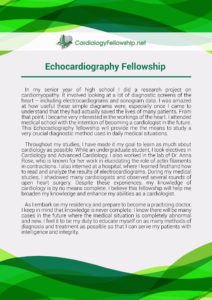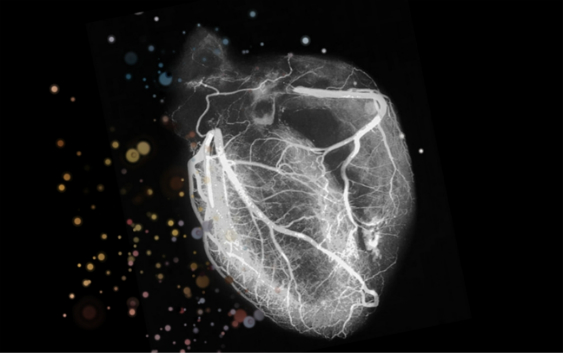Consider Cardiology Fellowships Rankings in the Application Process
Many of those completing their internal medicine residency will go into general medicine. Others will choose a sub-specialty they want to continue their education in. One of the most popular sub-specialties for internal medicine is cardiology. Getting into any cardiology program is difficult and even more so for those programs that are considered the best in the field. Those considering applying for a cardiology fellowship programs must weigh the ranking and prestige of an institutions program against how their qualifications measure up against other applicants.
Ranking the Top Cardiology Fellowship Programs
There are no official rankings for cardiology fellowship programs. As well as there are no exact classification of cardiology fellowship types (such as non-invasive, invasive non-interventional, electrophysiology and interventional cardiology fellowship). Being accepted into any accredited program is a significant feat in itself. However there tend to be more opportunities and a certain amount of prestige that comes from being in one of the top ranked programs. The following is an unofficial list of the top ten best cardiology fellowships:
 Case Western Reserve University Cleveland, OH
Case Western Reserve University Cleveland, OH- Harvard University Cambridge, MA
- University of California-Los Angeles Los Angeles, CA
- Stanford University Stanford, CA
- John Hopkins University Baltimore, MD
- University of California-San Francisco San Francisco, CA
- University of Pennsylvania Philadelphia, PA
- Washington University School of Medicine Saint Louis, MO
- Yale University New Haven, CT
- Columbia University New York, NY
Documents to Submit for Cardiology Fellowship Application
You will be required to submit a number of different documents when applying to the best cardiology programs. There may be some variation from program to program but most will require submitting the following:
- ERAS (Electronic Residency Application Service) application
- Curriculum Vitae (CV)/Resume
- Three letters of Reference (One letter should be from the director of your internal medicine program)
- USMLE transcripts
- Personal Statement
- MSPE (Medical Student Performance Evaluation)
- Official medical school transcript
Some programs may not require all of these documents. Others may request additional documents not listed here. It is a good idea to check with individual programs for specific requirements. With that being said, the above documents will be sufficient for most applications. Documents for cardiology programs are submitted through ERAS.
Tips for Your Cardiology Fellowship Application
Here are a few tips and suggestions to better you cardiology fellowship applications being accepted:
 Beef up your application: Try to get involved in a research project in the field. It can also help if you get the opportunity to work as a chief resident for a year. Both will be viewed favorably on your application
Beef up your application: Try to get involved in a research project in the field. It can also help if you get the opportunity to work as a chief resident for a year. Both will be viewed favorably on your application- Apply to your home program: If there is a cardiology fellowship program at the institution where you are doing your residency give serious consideration to submitting an application. In most cases your chances of being accepted will be better there than at another program
- Personal statement: The personal statement is where you have a chance to really get the attention of program directors. Show your individuality and uniqueness in your personal statement to generate interest in your application
- Don’t procrastinate: Residents have little or no free time to speak of. However, you need to make the time to start preparing your application. It takes time to assemble everything and there is a deadline you have to meet.
Cardiology Fellowship Program Application Common Mistakes
Here are a few of the most common mistakes applicants to cardiology fellowship programs make:
- Not being unique in your personal statement: Those reading your personal statement are likely experts in cardiology and don’t want to read about the state of the field. They want to know about you
- Failing to proofread: Getting into a cardiology program is tough. It will be virtually impossible if you submit an application full of spelling mistakes and grammatical errors
- Not being realistic: You want to get into the number one program. Who doesn’t? There will be hundreds of other well qualified applicants vying for a handful of openings. Go ahead and submit your application to the top program available but submit some to other institutions as well



